Season of Giving
By Naperville Magazine
December 2024 View more Featured
By Jeff Banowetz
Want to make a difference with your time and money? Here’s how you can give back through local groups that help others.
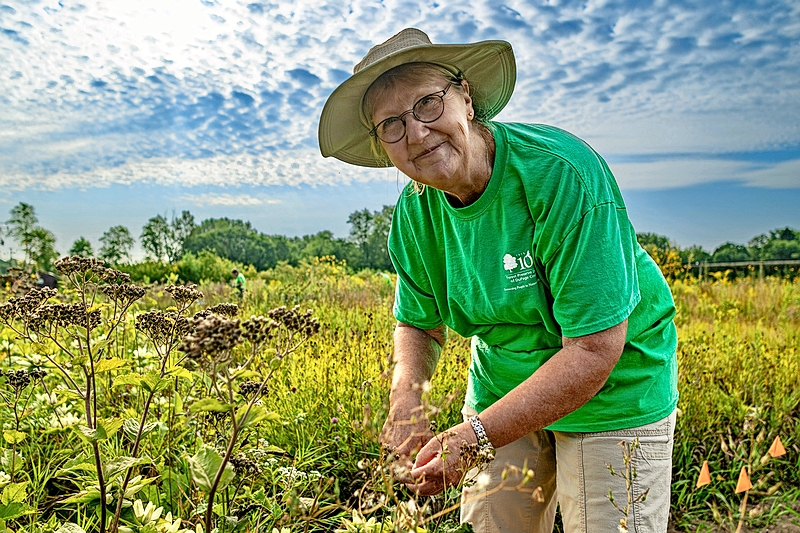
This time of the year, people think a lot about giving. It’s often about finding just the right present for a friend or loved one. But this is also a season of reflection, and that means thinking about how you decide to spend your time and how to make a difference. Local nonprofits work all year long to improve life in our community—nearly all of those organizations would disappear without volunteers.
It’s easy to come up with reasons to avoid commitment to volunteer work—who has the time?—but in speaking to those who do, you’ll find that it often becomes a priority in their lives. It’s become cliché for a reason: Volunteers get more than they give.
If you’re looking to make a contribution to the community, here are some local organizations to consider. Find a group doing something meaningful to you and get involved. You won’t regret it. And if you really don’t have the time, any nonprofit is happy to receive financial support for its mission.
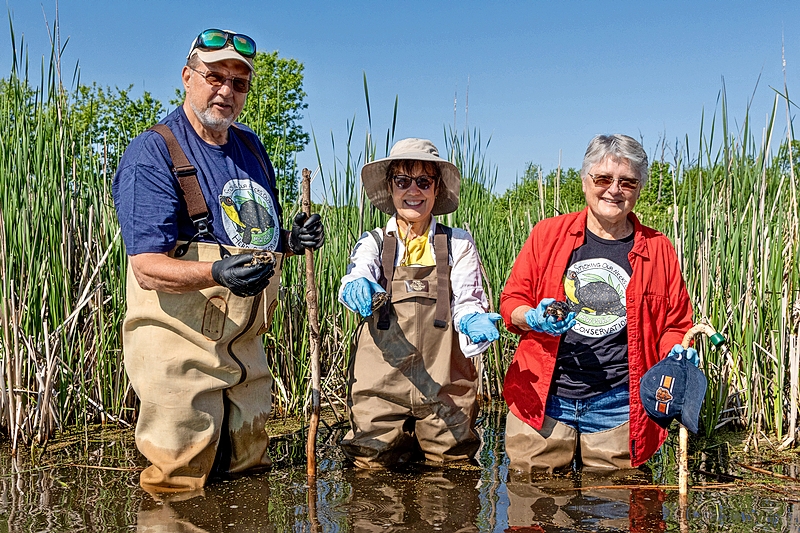
Embrace Nature and Animals

Working with animals and protecting outdoor spaces appeals to a lot of people, so it’s no surprise that volunteer opportunities with the DuPage Forest Preserve District are quite popular.
Animal lovers may be familiar with the Willowbrook Wildlife Center, which is undergoing a name change along with a new facility at the forest preserve in Glen Ellyn. “When it reopens, it will be under the name DuPage Wildlife Conservation Center, which is meant to highlight the larger scope of what it does,” says Jeannine Kannegiesser, chief partnership and philanthropy officer for the forest preserve.
The center’s mission is to rescue and rehabilitate injured wild animals in DuPage County. (Keep in mind that the center has very specific criteria on what animals it can treat. Visit the website for guidance about injured animals you encounter.)
Volunteers at the DuPage Wildlife Conservation Center “are focused primarily on the care of that wildlife,” Kannegiesser says. “They prepare food, clean enclosures, and provide enrichment opportunities for the animal, and they receive training for all that.”
Because of those training requirements, volunteers are expected to make a significant commitment to the program. Spots are highly coveted. “We have more interest than positions open,” Kannegiesser says. “It makes sense to start out at other opportunities in the forest preserve.”
Last year, 742 people participated in the forest preserves’ long-term volunteer program—a group spanning five generations (from kids to seniors)—which features 13 different areas of interest. Many of these are related to specific education centers, such as Kline Creek Farm in West Chicago, for example, which recreates a working farm from the 1890s. But others are about preserving the natural areas found in all the preserves throughout the county.
“If people want to get involved, the easiest way to get involved quickly is to come out for a restoration work day,” Kannegiesser says. “We have volunteer stewards who are long-term volunteers leading work within a natural area. And when you sign up for those public work days, you come out and are put to work doing whatever needs doing there. Often it’s removal of invasive species that tend to overgrow in our natural areas. Sometimes it could be collecting seeds or looking for something they hope to find in that natural area.”
Those who like spending time outdoors also will find plenty of opportunities at the Morton Arboretum in Lisle. “I’d say about 99 percent of our jobs are outside,” says Kristin Sabatino, manager of volunteer services at the arboretum. “After all, we’re a tree museum. That’s just the nature of what we do.”
The arboretum features more than 200 different assignments for volunteers, and more than 1,100 people typically help out in some capacity each year. “I’ve been here at the arboretum almost 15 years now, and we work hard to connect volunteers with what they’re passionate about,” Sabatino says. “We value a collaborative approach where volunteers and staff work side by side to advance the mission. Volunteers enhance and broaden the impact of paid staff, particularly in areas like our collections and research education.”
While finding a volunteer position at the arboretum isn’t difficult, the high interest has caused it to organize an onboarding process with a few windows each year. “Our two biggest times are the holidays and in the spring,” Sabatino says. “Spring is when we’re busiest with the growing season and supporting research.” The arboretum offers information sessions to learn about volunteer opportunities, but the easiest way for people to get involved is through the website, which highlights the variety of positions available.
What does the arboretum look for in volunteers? “A willingness to learn, be open to staff and feedback,” Sabatino says. “We have a lot of volunteers in the field doing horticulture work. You don’t have to know plant identification in advance. Most of our volunteers come to us to learn.”
They also develop friendships. “I think most really like the social aspect of it, getting to know the staff, getting to know fellow volunteers and having multi-generational opportunities to be with other people that are like-minded that want to support our mission,” Sabatino says.
Love pets? Consider giving some time to a local animal shelter—many rely on volunteers to help care for the pets, fundraise, and spread the word about the charity’s mission. The Naperville Area Humane Society promotes opportunities to help with dog and cat socializing, dog walking, facility cleaning, and animal transportation. They’re also looking for people to foster animals that are too young or small to be in the shelter. Most post wish lists on their websites highlighting their most immediate needs.
• • •

Nature and Animal Options
A.D.O.P.T. Pet Shelter
420 Industrial Dr., Naperville
630-355-2299
adoptpetshelter.org
DuPage Forest Preserves
Headquarters at 3S580
Naperville Rd., Wheaton
630-933-7233, dupageforest.org
Morton Arboretum
4100 Rte. 53, Lisle
630-968-0074, mortonarb.org
Naperville Humane Society
1620 W. Diehl Rd., Naperville
630-420-898, naperhumane.org

Feed the Hungry

Food insecurity is an issue that many of us are lucky to not experience firsthand, but it remains a significant problem in the area, with one in five residents in the western suburbs classified as low-income or below the poverty line.
The increase in food prices over the last few years has exacerbated the problem, making the work of local food pantries even more critical. “We very much focus on providing healthy food for our clients,” says Mike Havala, the CEO and president of Loaves & Fishes Community Services, which is celebrating its 40th anniversary. “It’s really what they want and what they need.”
It operates a food distribution center in Aurora, which features 38,000 cubic feet of refrigerator and freezer space for fresh food. Loaves & Fishes operates with a hub-and-spoke model, in which all the food comes into the Aurora center and is distributed at various locations across the area. “It helps us provide multiple locations for clients to get food, so we’re more out in the community,” Havala explains. “It helps us provide people with multiple ways to get food so they can get food in our grocery market [in Naperville]. Or they can get food by ordering it online and picking it up. We want the food available where people need it.”
Loaves & Fishes also operates a program called CARES, which provides those in need with cars and emergency financial assistance as well as access to programs and services for becoming more self-sufficient. “Some of the things that we’re very focused on would be things like overall client health, including physical, mental, and financial health,” Havala says.
People looking to get involved have lots of options.
“The good news is there’s so many different ways and roles that people can volunteer at Loaves & Fishes,” Havala says. “If you want to engage with clients, there are volunteer roles there. If people want to work in a more physical capacity, there are a lot of things we could use help with, like in our food operations in our warehouse. People can volunteer in our food market, our food distribution hub, or our spokes. They can deliver food or help with our CARES programs.”
The Marie Wilkinson Food Pantry in Aurora has a similar mission. Named after the longtime social and civil rights activist who founded it in the 1950s, the nonprofit has a main distribution center and three satellite locations. In addition to providing food, the Marie Wilkinson Food Pantry offers other programs to promote healthy living, including cooking classes, community gardens, and home delivery for seniors.
“We have volunteers that have been with us for 10 or 20 years,” says Cynthia Gamboa, development director at the food pantry. “The need is there, and people become dedicated to the service.”
As with other food pantries in the area, there are volunteer opportunities for a wide variety of jobs. Gamboa says they can accommodate people of all ages and find spots to fit their abilities. Some jobs, like working in the warehouse or driving, may require additional skills. “We’re always looking for drivers to help with food rescue, which is picking up thousands of pounds of food that would otherwise end up in a landfill,” she says. “There’s also our bread bags, which anyone can do, which is loading and replenishing these food bags for our neighbors.”
Food donations to pantries are often welcome as well, but be sure to check on their websites for specific needs. A better option is to donate funds directly to the food pantry to purchase food rather than drop off food you’ve bought yourself. “Our virtual food drive works really well because people can go to our website and purchase food at a very discounted rate using our purchasing power,” Havala says. “We fulfill that order and then provide it to clients. You can literally do it from your phone in five minutes. It saves people a lot of time and effort versus doing the more traditional physical food drive.”
• • •
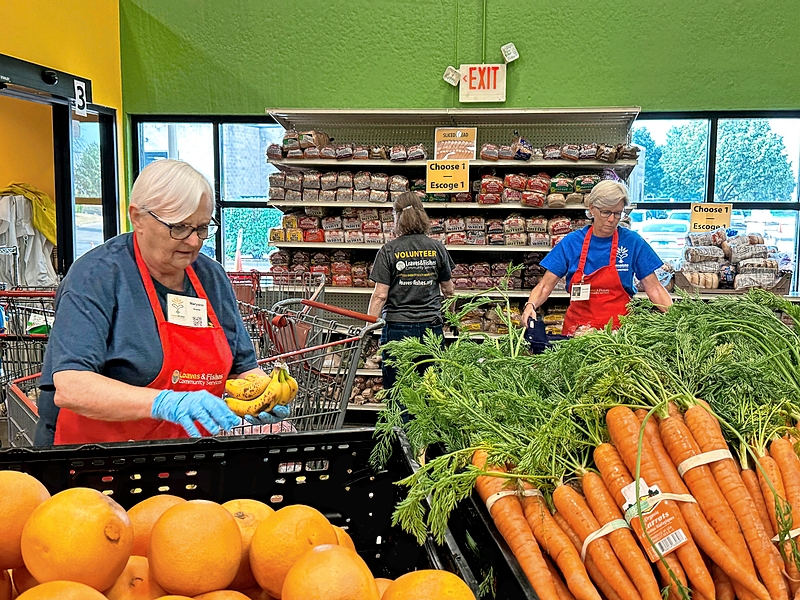
Food Pantries
Batavia Interfaith Food Pantry
431 N. Raddant Rd., Batavia
630-879-3784, bataviafoodpantry.org
Loaves & Fishes
1871 High Grove Ln., Naperville
630-355-3663, loaves-fishes.org
Marie Wilkinson Food Pantry
834 N. Highland Ave., Aurora
630-897-5431, mariewilkinsonfoodpantry.org
Northern Illinois Food Bank
273 Dearborn Ct., Geneva
630-443-6910, solvehungertoday.org
People’s Resource Center
201 S. Naperville Ave., Wheaton
104 Chestnut Ave., Westmont
630-682-5402, peoplesrc.org
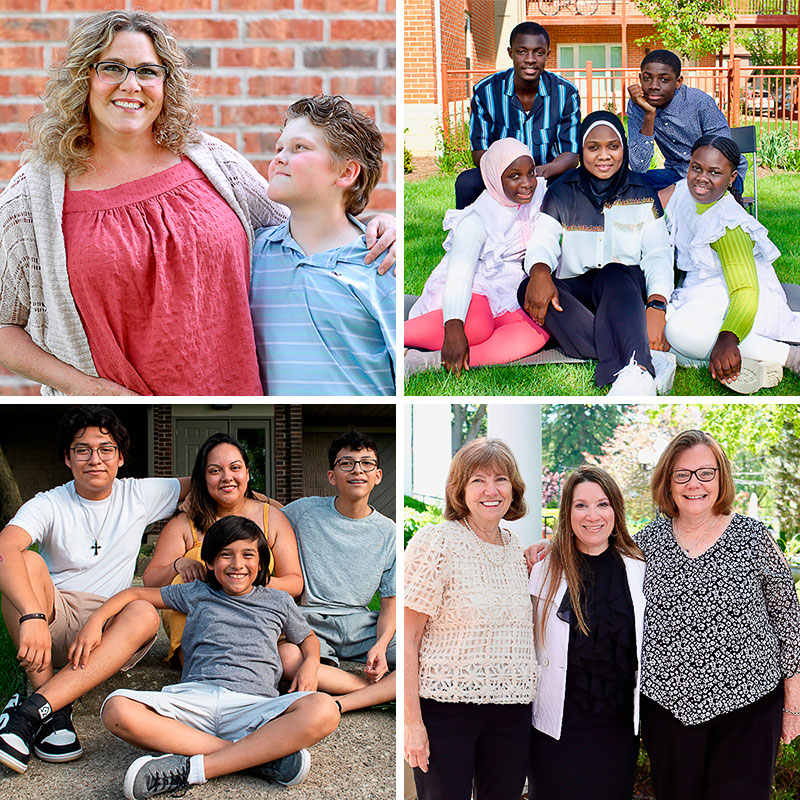
Help Someone Find a Home

Losing your home is the stuff of nightmares, yet it’s a reality for far too many people in the area who struggle with housing insecurity. Several local philanthropies work to help those get through this time of crisis and back on their feet.
Bridge Communities, founded in 1988 and headquartered in Glen Ellyn, helps more than 100 families each year overcome what can seem like an insurmountable obstacle. “The mission of Bridge Communities is to provide transitional housing and holistic services to families experiencing homelessness,” says Amy Van Polen, the organization’s CEO. “Our goal is for the family to heal from the traumas of homelessness and to learn the skills needed—and to be connected to the resources needed—so that they leave our program with long-term sustainable housing and financial security.”
Bridge Communities is focused exclusively on families with dependent children, and participants typically spend about two years in the program. It owns 25 apartment buildings in seven different communities in DuPage County. “Our families live independently in their own apartment,” Van Polen says. “We’re geographically close to multiple volunteer bases because we are heavily dependent on volunteers to execute and implement our mission.”
Bridge Communities relies on volunteers to work as mentors to families in the program, and more than 300 people currently serve in this role. “The best opportunity to volunteer with Bridge is to become a mentor,” Van Polen says. “Mentors work in tandem with the family to help them heal from the trauma of homelessness and to meet the family’s individual goals.”
Volunteer mentors collaborate with paid staff, but the mentors are the ones who most frequently meet with clients. “It’s sitting around the kitchen table and talking about life, goals, struggles, and what’s going well,” she says. “They’re celebrating the highs and working on the lows together as a team. I think what makes this a fantastic and beautiful mentoring opportunity is that your lived experiences may not have included poverty or homelessness, but by serving as a mentor, you really can have a deep and meaningful understanding of the barriers and the passions of persons suffering from it. It can be really meaningful in your own personal life.”
Hesed House in Aurora is Illinois’s second-largest homeless shelter. It serves more than 1,000 people on its campus each year to aid both families and individuals overcome problems that lead to homelessness. “Our goal is to help end homelessness, one person, one family at a time,” says Lauren Jernigan, Hesed House’s director of development. “We do that through a number of different ways, but most people are familiar with us through our on-site emergency shelters.”
Hesed House is finishing up an expansion project—it should be finished at the start of this month—which created a new men’s shelter on its campus, allowing better use of space throughout the buildings it operates. “It’s a project we’ve been working on for the past few years, and so if folks familiar with Hesed House haven’t been here for a while, it’s going to be a new experience for them to come and volunteer.”
More than 7,500 people volunteer for Hesed House each year, many through the more than 90 churches, businesses, and service organizations that work with the nonprofit. As you can imagine, a wide variety of volunteers are needed throughout the organization. “One of the most common ways is helping serve a meal,” Jernigan says. This could be onsite, or Hesed House’s team can come to your business or civic group to organize a volunteering event. “We’re always in need of sack lunches,” she says. “And that’s something where we can come out, we can meet with you and share what’s going on, but then your group can make sack lunches that we can bring back to the shelter. A lot of our guests are working. They’ve got jobs as they’re getting ready to get back into independent living. And so they can then take those lunches with them and ensure they have a meal when they’re out working.”
Hesed House is working to establish a Junior Ambassadors program to help organize teens interested in volunteering, and they also have several different donation drives to collect things needed for the shelter. “We also have special projects from time to time, whether it’s landscaping, helping with job training, or working on an event,” Jernigan says. “With more than 300 people in our emergency shelter on a typical day—and many other folks we’re serving with our other programs—there’s always something going on.”
• • •
Homeless Nonprofits
Bridge Communities
500 E. Roosevelt Rd., Glen Ellyn
630-545-0610, bridgecommunities.org
Hesed House
659 S. River St., Aurora
630-897-2156, hesedhouse.org
DuPagePads
601 W. Liberty Dr., Wheaton
630-682-3846, dupagepads.org
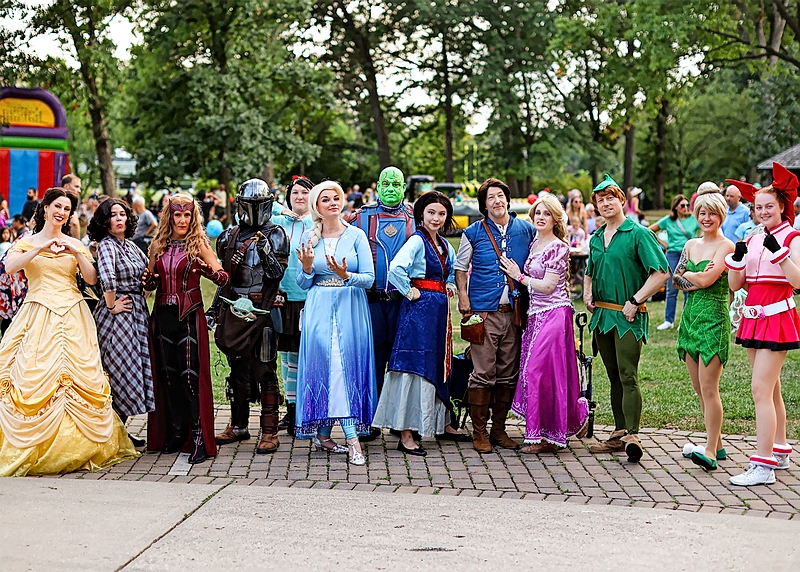
Kids and Culture

Museums, theaters, forest preserves, and park districts are just some of the civic organizations that rely on volunteers to support their cultural offerings. From coaching youth sports to serving as an usher for theater performances, you can find a wide range of opportunities to fit your interest.
The DuPage Children’s Museum in Naperville’s mission is to “nurture joyful discovery and learning with a vision that all children thrive with access to extraordinary learning experiences,” according to Julie Lakner, chief of creativity and strategic communications at the museum. “The museum ensures that children not only enjoy playful exploration but also gain valuable skills that promote cognitive, social, and emotional growth in a stimulating and supportive environment.”
Community support is critical to the museum’s mission, including financial and volunteer support. During this academic year, 538 people contributed more than 6,700 hours of work to the museum.
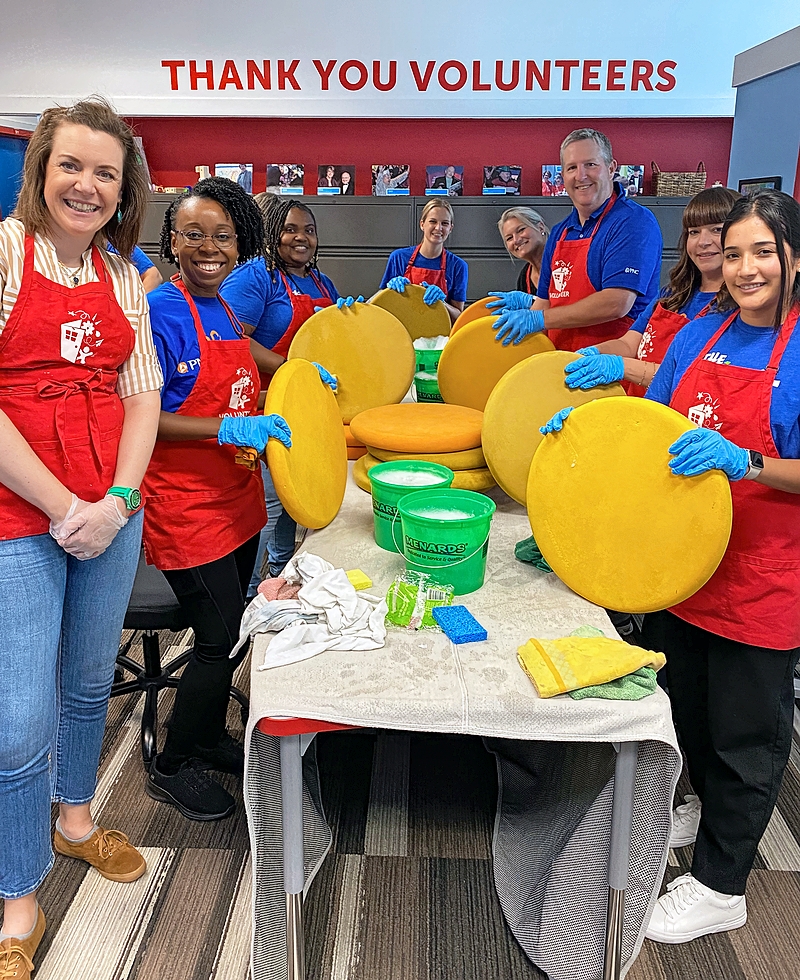
“We work with each individual volunteer to find the best fit,” Lakner says. “Some of the opportunities we offer include working on the museum floor engaging guests in play, facilitating activities at special events, behind-the-scenes tasks like assembling kits for the museum’s Learning Labs, and cutting wood or repairing exhibits in the workshop.”
At Naper Settlement in downtown Naperville, volunteers play an instrumental role in everything from educational presentations (like blacksmithing) to gardening. The 13-acre, family-friendly outdoor history museum was established in 1969 to “document, preserve, and interpret the community life of Naperville, Illinois, including but not limited to the social, political and business history.”
• • •

Educational Organizations
DuPage Children’s Museum
301 N. Washington St., Naperville
630-637-8000, dupagechildrens.org
Naper Settlement
523 S. Webster St., Naperville
630-420-6010, napersettlement.org
• • •
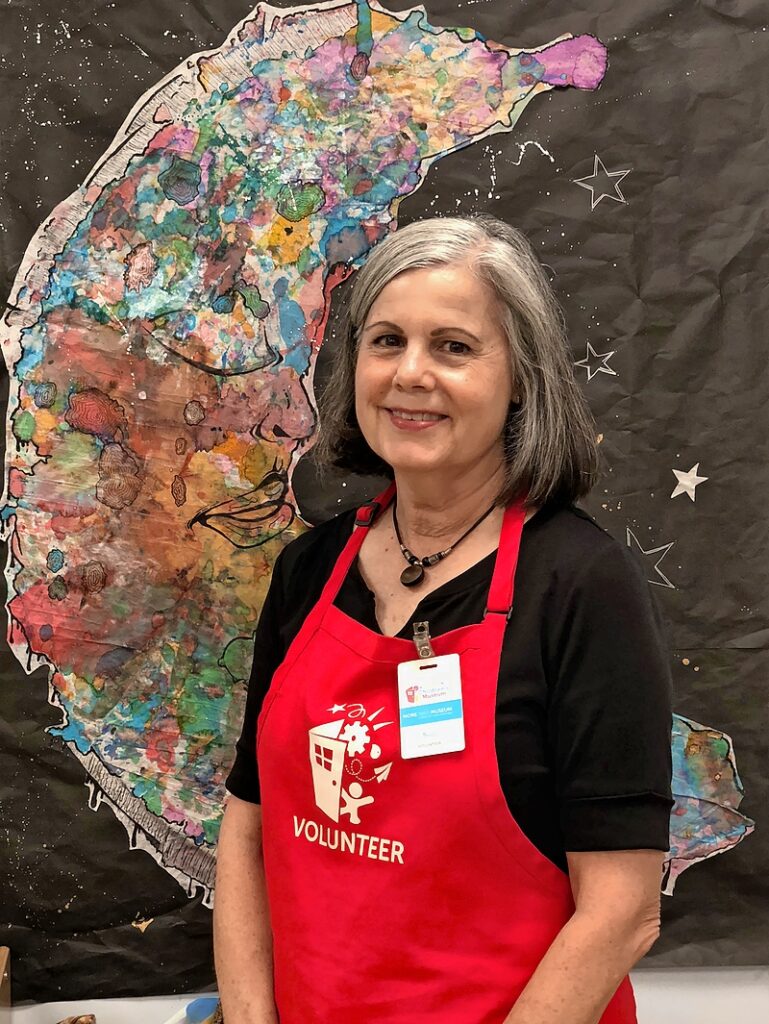
Young at Heart
The DuPage Children’s Museum attracts many supporters, but few know the place better than Sue Kamm (above), who’s been volunteering with the museum for more than 20 years. “I love the opportunity for creativity in The Studio and the possibilities for connecting adults and children,” Kamm says. “I give my time and treasure because I believe in the mission.” She’s proud to contribute to a place where “kids and adults can learn together through play.” As she likes to say, “The DuPage Children’s Museum is my happy place.”
Photos: DuPage Forest Preserve District; Time Stops Photography (Night to End Hunger); Loaves & Fishes Community Services (food pantry); Bridge Communities; Glen Ellyn Park District (Glow in the Park); DuPage Children’s Museum; Illustrations by Serge Bloch


